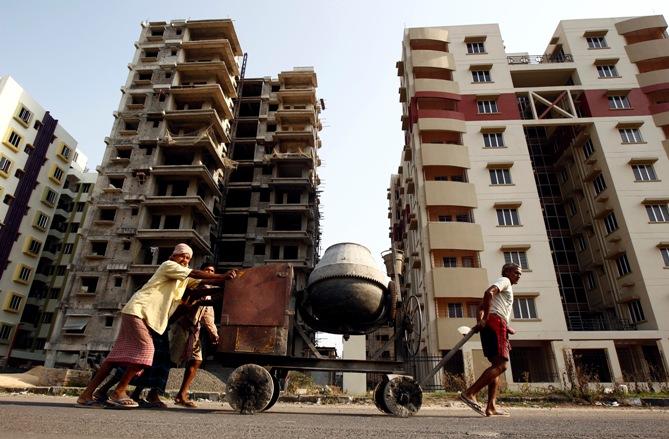The real estate sector is a major employment provider and the economy cannot afford its hard landing. Harsh Roongta suggests measures that can revive the under-construction market.

The media is full of articles on potential hard landing for the real estate sector. This is driven by possible auctioning of the properties of the defaulting developers under the new insolvency laws, as well as implementation of Real Estate Regulation Act (RERA), which will require the developers to start paying for their past defaults.
But the real estate sector is a major employment provider and the economy cannot afford its hard landing.
A large part of the demand for real estate comes from taxpayers who have sold their residential houses and they are able to claim exemptions under capital gains (under Section 54), if the gains are re-invested in another residential house.
Another sizable portion of the demand comes from taxpayers who may have sold an asset other than a residential house and invest the entire sales proceeds in a residential house to claim exemption of the capital gains (section 54F).
The current environment has a heightened sense of risk perception on under-construction flats. As a result, a lot of tax payers choose to buy ready-to-move-in property or deposit the amount in a capital gains account scheme that allows them to defer the actual purchase by a couple of years.
In such cases, the investment is denied to the under-construction sector.
There is a solution.
A new class of Residential Real Estate Investment trust (RREIT) can be created under the overall regulation of Securities and Exchange Board of India.
Approved entities can float three-five year closed-end RREIT funds that will solely invest (by way of purchase) in under-construction residential flats.
RREITs should require that the raised funds should be used to purchase only under-construction flats within three months of closing the series. This will ensure that only those entities that have a deal flow in place will raise these funds.
The taxation can be on a pass-through basis -- meaning that the fund itself is not taxed but the investors are taxed as the income from the fund (capital gains, interest, rentals, etc) is taxed in the hands of the investor on a similar basis.
The investment in RREITS should be done within six months of the transfer of the capital asset thus ensuring that the funds are used for purchasing under construction expeditiously since RREITs themselves would be required to invest within three months.
The regulatory and taxation framework can be finalised much quicker given the existing experience with REITs.
For tax payers purchasing RREITs instead of a single residential house will provide excellent diversification across types of property and geographies with the benefit of professional management by a fund manager.
The fund managers will be able to drive a good bargain with the developers given the amounts at their disposal.
The fund will also be in a much better position than an individual to take over the project if the developer defaults on his RERA obligation to deliver on time.
Since this is an existing tax exemption the government will not be losing any additional tax revenue.
Real estate bodies should give this suggestion to the government as a part of their pre-Budget memorandum.
Photograph: Rupak De Chowdhuri/Reuters.
Harsh Roongta is a Sebi-registered fee-only investment advisor.











